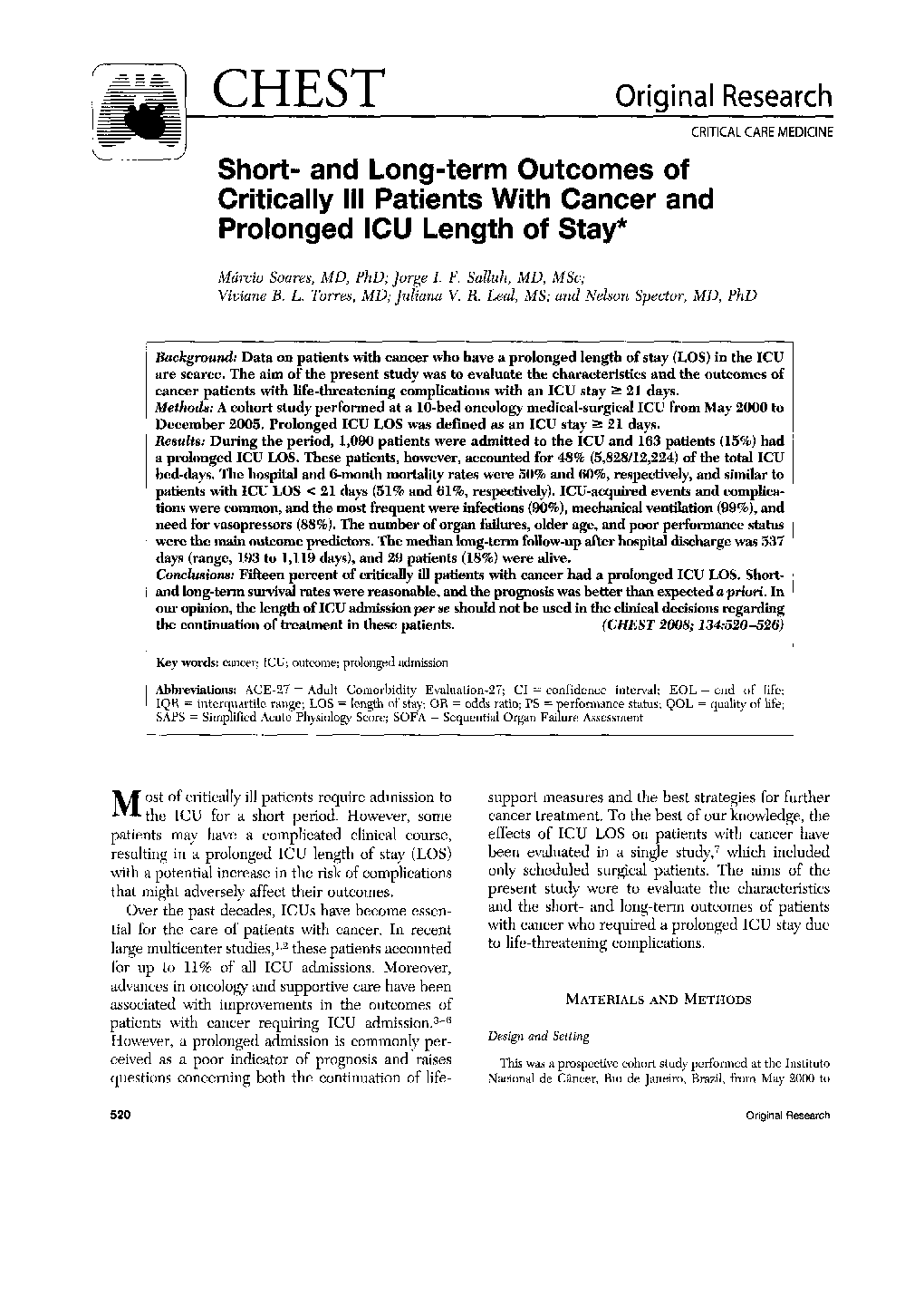| Article ID | Journal | Published Year | Pages | File Type |
|---|---|---|---|---|
| 2903958 | Chest | 2008 | 7 Pages |
BackgroundData on patients with cancer who have a prolonged length of stay (LOS) in the ICU are scarce. The aim of the present study was to evaluate the characteristics and the outcomes of cancer patients with life-threatening complications with an ICU stay ≥ 21 days.MethodsA cohort study performed at a 10-bed oncology medical-surgical ICU from May 2000 to December 2005. Prolonged ICU LOS was defined as an ICU stay ≥ 21 days.ResultsDuring the period, 1,090 patients were admitted to the ICU and 163 patients (15%) had a prolonged ICU LOS. These patients, however, accounted for 48% (5,828/12,224) of the total ICU bed-days. The hospital and 6-month mortality rates were 50% and 60%, respectively, and similar to patients with ICU LOS < 21 days (51% and 61%, respectively). ICU-acquired events and complications were common, and the most frequent were infections (90%), mechanical ventilation (99%), and need for vasopressors (88%). The number of organ failures, older age, and poor performance status were the main outcome predictors. The median long-term follow-up after hospital discharge was 537 days (range, 193 to 1,119 days), and 29 patients (18%) were alive.ConclusionsFifteen percent of critically ill patients with cancer had a prolonged ICU LOS. Short- and long-term survival rates were reasonable, and the prognosis was better than expected a priori. In our opinion, the length of ICU admission per se should not be used in the clinical decisions regarding the continuation of treatment in these patients.
